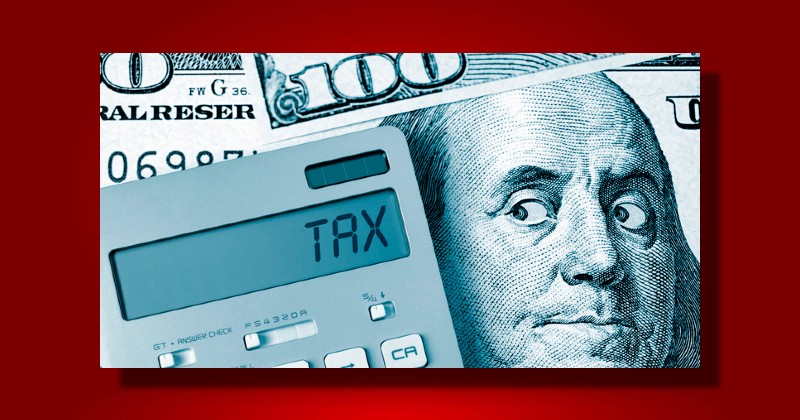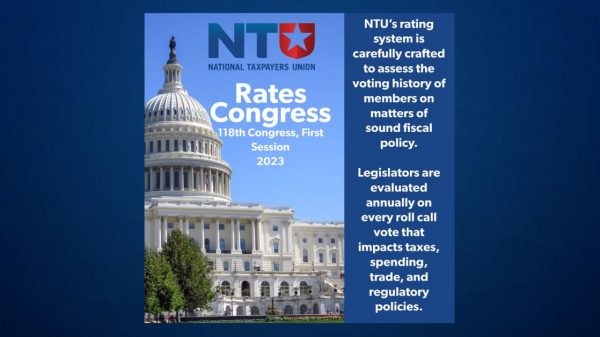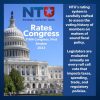It’s an old aphorism that if you tax something, you get less of it. Seven states are at risk of finding out exactly how that truism applies to wealth tax legislation introduced in each should their proposed taxes become law.
On Thursday, January 19, seven states — California, Connecticut, Hawaii, Illinois, Maryland, New York, and Washington — rolled out various forms of wealth taxes and other taxes on high-income earners. These proposals include taxes on wealth, mark-to-market treatment of unrealized capital gains, surtaxes on income for high earners, corporate tax increases, and digital taxes.
Similar proposals have floundered at the federal level for good reason, but they are even more ill-advised at the state level. It’s no coincidence that each of the seven states save one (Washington) proposing this progressive tax wishlist lost taxpayers, on net, to domestic migration as of the latest IRS data release. In total, these seven states lost a net of over 300,000 households and $46.6 billion in adjusted gross income to other states.
In other words, wealthier taxpayers in these states have already begun to recognize that their representatives view them only as cash cows to be squeezed for all they’re worth, and are fleeing to greener pastures. While loading up taxes on wealth, investment, and entrepreneurship is foolish at the federal level for policy reasons, at the state level they are ill-advised for all those reasons as well as the fact that overtaxed residents can simply up and leave.
States responding to this trend with yet more taxes are only proving their taxpayers’ fears true. Relying more and more on a small tax base of wealthy individuals eyeing up their upcoming move to Florida or Texas is not a recipe for fiscal success at the state level.
But as this latest round of tax hike proposals shows, high-tax states are likely only to double down. For some time, states have been ramping up efforts to tax nonresidents as a way to get around persistent trends of outward tax migration.
The most egregious example of this came, unsurprisingly, from California. A couple years ago, some legislators proposed a wealth tax that would also include an “exit tax,” applying the wealth tax to residents for ten years after they leave the state and set up residency elsewhere. Fortunately, this almost certainly unconstitutional tax never became law, but it represented an initial effort to tangle up fleeing taxpayers in an inescapable tax web.
Other efforts are far less heavy-handed, and therefore far more dangerous. Five states, including two of the above seven, enforce a so-called “convenience of the employer” rule. These rules require taxpayers who switch from commuting into the state to working from home in another state to continue paying income taxes to the state they used to commute into so long as they could have continued commuting — even if they never set foot in that state.
Other examples include digital advertising taxes, such as was briefly enforced in Maryland. Maryland’s tax applied to digital advertisers based on worldwide income, not Maryland-based income, with the clear intention of grasping at large, out-of-state advertisers’ income. Maryland’s tax was slapped down by the courts at the end of last year.
States are also increasingly trying to enforce tax burdens on remote sellers with no physical presence in a state. This includes enforcing sales tax collection obligations on out-of-state businesses as well as a nascent effort to apply the same logic to corporate income taxes on out-of-state sellers, despite federal law that seemingly bars states from doing so.
These issues may often appear to be purely esoteric, jurisdictional disputes, but at their core they represent the response effort by states seeing their tax bases flee to other states to force taxpayers into their jurisdiction. The goal is to limit taxpayer agency in something that is fundamental to the American federalist system — the ability to choose which state to live in and be taxed by.
Should high-tax states succeed in their efforts to spread the reach of their tax jurisdictions, they may be able to bypass the revenue consequences of ever-increasing tax obligations. Should that happen, the proposals in these seven states are just a taste of what taxpayers can expect.
Andrew Wilford is a policy analyst with the National Taxpayers Union Foundation, a nonprofit dedicated to tax policy research and education at all levels of government. This article was originally published by RealClearMarkets and made available via RealClearWire.



















